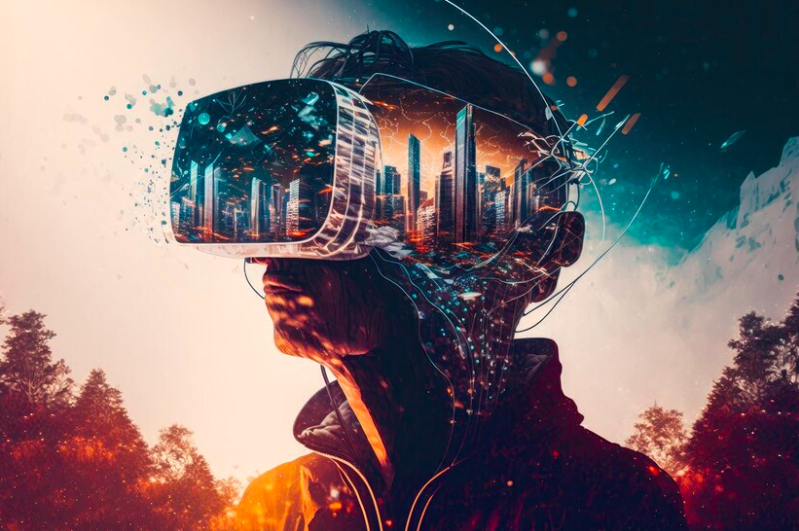How AI is Changing the Way We Entertain

Artificial intelligence (AI) is rapidly transforming the entertainment industry. From creating personalized experiences to generating new content, AI is being used to make entertainment more engaging and immersive.
Here are some of the ways that AI is being used in entertainment:
- Personalized recommendations: AI can be used to recommend movies, TV shows, and other content that is tailored to each individual's interests. For example, Netflix uses AI to recommend movies and TV shows to its users based on their viewing history.
- Virtual assistants: AI can be used to create virtual assistants that can answer questions, provide recommendations, and control entertainment devices. For example, Amazon's Alexa can be used to control smart speakers, play music, and get news updates.
- Content generation: AI can be used to generate new content, such as scripts, music, and artwork. For example, the company OpenAI has developed a language model called GPT-3 that can generate text, translate languages, and write different kinds of creative content.
- Gaming: AI can be used to create more realistic and engaging games. For example, the game "Grand Theft Auto V" uses AI to create realistic traffic patterns and pedestrian behavior.
- Virtual reality: AI can be used to create more immersive virtual reality experiences. For example, the company Magic Leap is using AI to develop a virtual reality headset that can track users' eye movements and facial expressions.
These are just a few of the ways that AI is being used in entertainment. AI has the potential to revolutionize the entertainment industry and make it more personalized, immersive, and engaging.
The future of AI in entertainment is bright. With continued research and development, AI is poised to play an even greater role in the entertainment industry in the years to come.
Here are some of the potential benefits of AI in entertainment:
- Increased personalization: AI can help to make entertainment more personalized by tailoring it to each individual's interests. This can make entertainment more enjoyable and engaging.
- Enhanced immersion: AI can help to make entertainment more immersive by creating realistic and interactive experiences. This can make entertainment more engaging and believable.
- New possibilities: AI can open up new possibilities for entertainment by creating new forms of content and experiences. This can make entertainment more exciting and innovative.
The adoption of AI in entertainment is still in its early stages, but it is growing rapidly. As AI technology continues to develop, it is likely to play an increasingly important role in the entertainment industry.
Here are some of the challenges that need to be addressed in order to fully realize the potential of AI in entertainment:
- Data privacy: AI systems need access to large amounts of data in order to train and operate effectively. This raises concerns about data privacy and security.
- Algorithmic bias: AI systems can be biased if they are trained on data that is biased. This can lead to unfair decisions being made, such as denying access to content.
- Explainability: It can be difficult to understand how AI systems make decisions. This can make it difficult to trust and use these systems.
- Regulation: As AI becomes more widely used in entertainment, there will be a need for new regulations to ensure that it is used responsibly and ethically.
Despite these challenges, the potential benefits of AI in entertainment are significant. With careful planning and execution, AI can help to make entertainment more personalized, immersive, and engaging.


